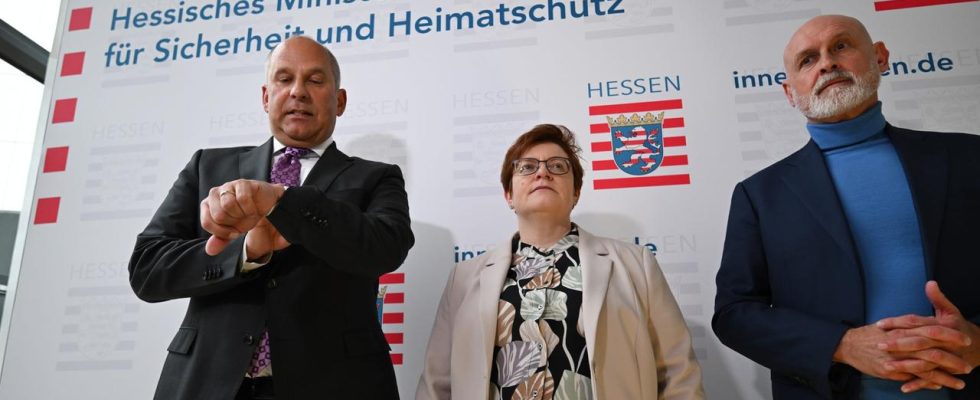Collective bargaining conflicts everywhere – but one thing now seems to have been resolved: the state of Hesse and the unions have apparently reached an agreement for the public service. Details are not yet known.
The collective bargaining parties in Bad Homburg had been negotiating in the third round since Thursday afternoon, and an agreement was reached around 4 a.m. on Friday morning. According to information from the civil service association dbb from Friday afternoon, these are the key points:
- Tax- and social security-free inflation compensation of 3,000 euros (three-stage payment: May 2024, July 2024 and November 2024 at the latest)
- From February 1, 2025, table fees will increase by 200 euros (base amount)
- From August 1, 2025, table fees will be increased by 5.5 percent (adjustment of the increase amount to 340 euros where this value is not reached)
- Training and intern fees: Increase by 100 euros from February 1, 2025 and by 50 euros from August 1, 2025
- Annual special payment: Up to salary group 8 increased to 90 percent, from salary group 9a increased to 60 percent
State ticket Hesse will be continued
Other agreements include a higher allowance for specialists such as doctors and in the area of scientific and artistic employees, for whom there should be more permanent contracts. The Hesse state ticket will be continued.
Poseck: “Financial “exertion”
The collective agreement runs for 24 months until January 31, 2026. The income improvements should be transferred to civil servants and pension recipients “simultaneously and in accordance with the system”.
The country’s chief negotiator, Interior Minister Roman Poseck (CDU), said on Friday that the agreement was a “financial effort, but overall a good result.” Public service employees ensure the functioning of the state, emphasized Poseck.
negotiator speaks of “tough wrestling”
The importance and commitment of the employees should also be reflected in their pay. “We also want to further increase the attractiveness of the public service,” he said. “That’s why it was right and necessary to agree on a significant increase in wages, even in times of a tense budget situation.” Both sides had shown the ability to compromise, said Poseck.
dbb collective bargaining boss Volker Geyer said: “It was a tough struggle.” Ultimately, the unions were able to convince the employer to “upgrade the public service throughout Hesse and thereby ensure its long-term attractiveness.”
dbb: State tackles pay scale
Geyer said: “We have achieved a result that gives employees noticeably more money in their wallets.” He added: “So that this added value is not immediately eaten up by inflation, we were also able to negotiate a strong inflation compensation.”
In addition to the increases, he was particularly pleased with the fact that “we were able to convince the state to tackle the pay scale and start discussions about it as soon as possible.” The pay scale stipulates the characteristics according to which employees are grouped in the pay table.
Several warning strikes
dbb state chairman Heini Schmitt said that the increase in salaries for trainees and interns had a great signaling effect. “In this way, too, we secure the young talent that we urgently need in the public service.”
Collective bargaining began on February 14th and continued on March 6th and 7th. Since negotiations began, there have been several Warning strikes in the national service. The unions had demanded 500 euros more per month, but at least 10.5 percent.
More than 160,000 affected
The agreement affects around 56,000 public sector employees in the country. Including the civil servants to whom the outcome of the negotiations is to be transferred, there are more than 160,000 affected.
Hesse is the only federal state that is not a member of the employers’ association Tarifgemeinschaft deutscher Länder (TdL). The collective bargaining for Hessian state employees has therefore been conducted independently since the exit in 2004.

